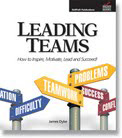The April 2011 issue of Harvard Business Review is a theme issue on the topic of Failure and is a treasure trove of wonderful articles and keen insights. I highly recommend it! One of the gems is an article by entrepreneur David S. Silverman in which he shares insight from his research and his own personal journey of success and failure.

Silverman’s study of the failures of diverse entrepreneurs (the likes of Gordon Ramsay, Lusk and Harrison, Marc Hedlund, Robert Strauss, and others) yielded the following thoughtful conclusions:
“While it’s tempting to think that each tale of entrepreneurial woe would be unique, that’s not the case. As a failed American dreamer myself, I saw in all the books, chapters, and posts the same core set of ‘mistakes’:
- I didn’t have enough experience – now I know.
- I thought I knew everything – I did not.
- I thought it (selling toasters, watering lawns) was going to be easy – it was extremely hard.
- People (customers, employees, partners, investors) are reluctant to change what they’re used to – I didn’t sell anyone anything.
- I forgot to try and make money. ”

“From all these examples, in print and online, the message is clear: Failure happens; it’s what you take from it that makes the difference between a fall and a stumble. With one, you hit the ground and stay there; with the other, you regain your footing and keep running. Or, to quote from an executive who has overcome adversity, Soichiro Honda, founder of Honda Motor Company, ‘Success is 99% failure.’”
Success is 99% failure. – Sochiro Honda
In organizational life, I worked for a highly intelligent CEO who used to remind all of us who reported to him,
If we aren’t failing SOMEWHERE, we probably aren’t trying hard enough.
There is some wisdom there, but it can easily be misconstrued to accept fast-and-loose risk-taking. The same CEO also added this footnote: “Of course, as leaders, we must be willing to take risks. But we should not be leaping off the cliffs. We should be taking calculated or educated risks.”

In another insightful article from the same HBR issue, Daniel Isenberg cautioned leaders about the danger of “embracing failure” to encourage entrepreneurship. He tells us, bluntly, that this “is misguided. Failure should not be celebrated.”
He reminds us, “Contrary to myth, entrepreneurs are not reckless gamblers. True, risky business is an intrinsic aspect of pushing the innovation envelope. But it’s important to train entrepreneurs to fail small, fast, and cheaply. Inexpensive failures don’t make headlines—and don’t cause embarrassment or shame. Policy makers can support the training of entrepreneurs in risk-mitigation strategies and skills.”

— Image by © Royalty-Free/Corbis
Isenberg then makes a distinction between the inner dynamics of anxiety and true fear. He explains…
Anxiety, Freud is said to have explained, is when you irrationally react to a simple stick as if it were a dangerous snake. Fear is when you react to a dangerous snake as if it were, well, dangerous. Anxiety is dysfunctional, but fear can be good: It helps protect us from things that are dangerous—such as risk taking. Entrepreneurs, in my experience, develop a healthy fear of what can go wrong. They just don’t let it paralyze them.
So… what do YOU do with this insight? It’s probably worth a straightforward discussion with YOUR team about the same issues that Silverman raised:
- What do we know/ what have we learned, from our collective experiences?
- Where are the biases in our assumptions about our work and our business?
- How committed are we as a team to do the hard work necessary to achieve and succeed?
- How are we helping colleagues and clients to embrace new ideas, processes, products?
- What are we doing to add profitability [or productivity] to our organization? i.e. How are we Making It; Saving It; or Stretching It? (The IT being money, of course!)
If you are interested in learning more about how teams fail and how YOUR team can SUCCEED, then give us a call – we can help! We can give you and your team exactly what you need to perform, produce, and succeed. We can bring fresh ideas and practical tools to your organization through a one or two-day training event; a half-day event; or even a two-hour “lunch and learn” if your time and resources are limited. Call us today!
Until next time… Yours for better leaders and better organizations,
Dr. Jim Dyke – “The Boss Doctor” ™ helping you to BE a better boss and to HAVE a better boss!


